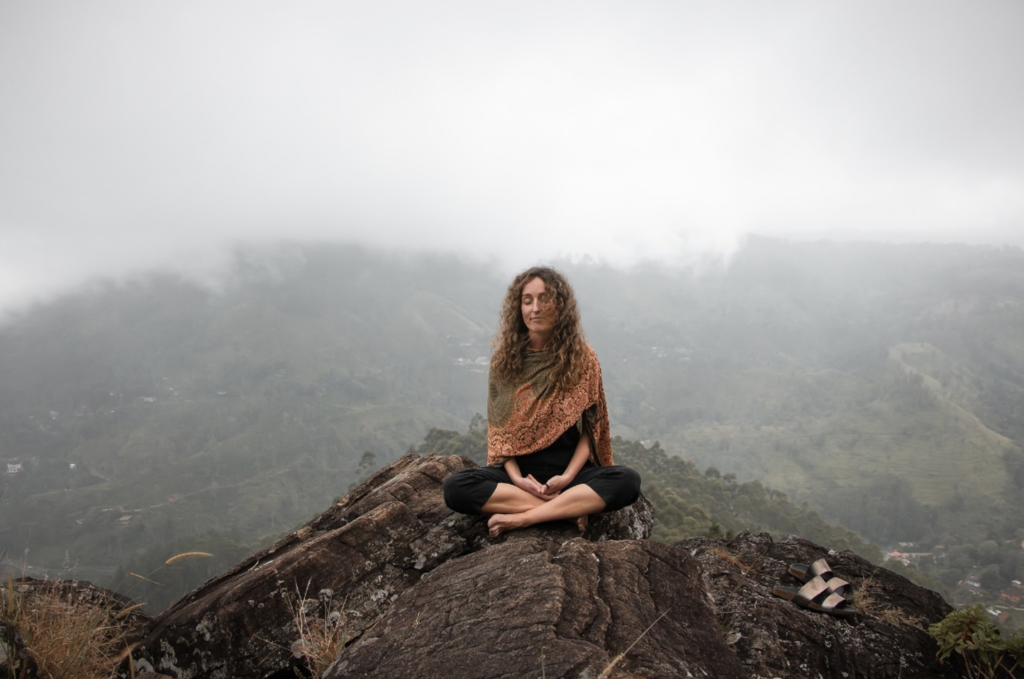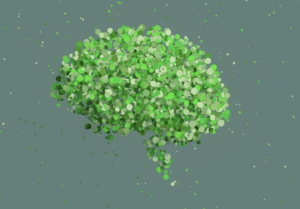In the current world, we face countless challenges which are accompanied by varying emotional responses. These challenges can produce anxious and stressful feelings, which in turn, can put a tremendous strain on well-being. Our emotions play a fundamental role in decision-making and actions – so it is crucial to overcome the negative feelings so we can begin to act in ways that will make meaningful changes to our lives. Practicing mindfulness is an excellent way to overcome this barrier as it allows us to accept our emotions as they arise.
What is Mindfulness? Mindfulness is a mental state achieved by being consciously aware of the present environment, and it is something that can be practiced in everyday life. It begins with a directed awareness of everything in the present moment with a key focus on current thoughts, feelings, sensations experienced in one’s environment. Being aware of our surroundings helps us live in the moment and find joy easily in the simple things. Tomorrow morning, sit down and take the time to smell, taste, and truly enjoy your breakfast. You will appreciate that doing so is a great start to the day.

We all like to ponder about the past and the things we would have done differently without realizing the negative impacts of that way of thinking. Ruminating over past stressors or negative events makes us more likely to be susceptible to the harmful impacts of current stressors. However, practicing mindfulness allows us to direct your attention away from the past and the accompanying negative thoughts and focus on the present. Our emotions and thoughts become more in line with one another, because focusing on our thoughts in the present moment without distractions helps us experience any emotion with greater balance and acceptance. For example, when eating your breakfast tomorrow, although thoughts may pass through your mind, try to direct your attention to being in the moment and enjoy your delicious breakfast.
The Benefits of mindfulness. Practicing mindfulness can decrease burnout, improve your sleep, and improve attention and concentration. It can also reduce stress, anxiety, and depression because it teaches us to accept our emotions. It is okay to be stressed out about things- we are human! When we accept the fact that these are expected emotional responses, we become free to act on them.
Mindfulness in Nature. Being mindful in nature helps us feel connected to the planet we all live in. A good way to start is to make your way to a natural environment that is special to you and find a place to sit down for a while. Slowly take in the beauty of the natural world and allow it to filter through all your senses. Focus on the energies around you, such as the movement of the trees, the warmth of the sun, the touch of the breeze. Think about how all these energies serve a purpose in the world.

Mindfulness and Climate Change. Being mindful in nature helps us strengthen our connection to this beautiful planet we call home. It teaches us to be careful and make better choices to protect our planet. It also strengthens our sense of empathy and increases our awareness of our relationship with other living things. Being mindful in nature can help strengthen our connection to our environment, which may increase our urgency to act in more sustainable ways. Being aware of how we are treating our planet is important for prolonging the longevity of our home.

is a first year Masters student studying psychology at Carleton University. McKenna is interested in finding better ways to communicate climate change to young people so they can feel empowered to make a difference. McKenna has been a part of the MOCHI research team since 2021, and she has been creating content and analyzing social media analytics since our launch of mochi4theplanet in 2022. McKenna plans to continue working with MOCHI and hopes to inspire others to join the flight for our shared planet.
References
Centeno, R. R., & Fernandez, K. G. (2020). Effect of mindfulness on empathy and self compassion: An adapted MBCT program on Filipino college students. National Library of Medicine, 10(3), 61-. https://doi.org/10.3390/bs10030061
Khoury, B., Lecomte, T., Fortin, G., Masse, M., Therien, P., Bouchard, V., Chapleau, M., Paquin, Hofmann, S. G. (2013). Mindfulness-based therapy: A comprehensive meta-analysis. Clinical Psychology Review, 33(6), 763-771. https://doi.org/10.1016/j.cpr.2013.05.005
Nisbet, E. K., Zelenski, J. M., & Grandpierre, Z. (2019). Mindfulness in nature enhances connectedness and mood. Ecopsychology, 11(2). https://doi.org/10.1089/eco.2018.0061
Ray, T. N., Franz, S. A., Jarrett, N. L., & Pickett, S. M. (2020). Nature enhanced meditation: Effects on mindfulness, connectedness to nature, and pro-environmental behaviour. Environment and Behaviour, 53(8). https://doi.org/10.1177/0013916520952452
Additional Resources
Five senses worksheet: https://positive.b-cdn.net/wp-content/uploads/The-Five-Senses-Worksheet.pdf
3 step mindfulness worksheet: https://positive.b-cdn.net/wp-content/uploads/3-Step-Mindfulness-Worksheet.pdf
Mindful eating worksheet: https://positive.b-cdn.net/wp-content/uploads/2020/10/Fun-Mindful-Eating.pdf






